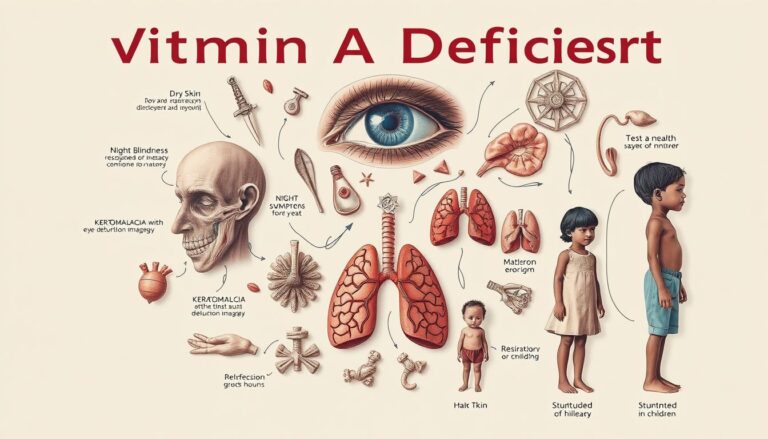Thinking about B-Complex Vitamin supplements? It’s key to know their benefits. B-Complex Vitamins help with energy, nerve health, and heart health. They are important for your well-being.
Pregnant women, older adults, and people with certain health issues can really benefit. They help a lot with vitamin B benefits.
In this article, you’ll learn about B-Complex Vitamins’ importance. They help reduce stress and boost mood. But, high doses of some B vitamins can be risky.
You’ll see how supplements support your health and what to expect. By the end, you’ll know more about B-Complex Vitamins. This will help you make smart choices about vitamin B benefits and supplements.
Understanding B-Complex Vitamins
B-Complex Vitamins are key for your body’s energy. They are a group of eight vitamins that help keep you healthy. These vitamins are thiamine (B1), riboflavin (B2), niacin (B3), pantothenic acid (B5), vitamin B6, biotin (B7), folate (B9), and vitamin B12.
They help turn food into energy and make red blood cells. They also keep your skin, hair, and nails healthy. Getting enough B-Complex Vitamins is important for energy and health.
B-Complex Vitamins are very important for your body. They help with nerve function, heart health, and the immune system. Eating foods rich in these vitamins is key. Foods like lean meats, fish, eggs, dairy, and leafy greens are good sources.
Key Benefits of B-Complex Vitamins
B-Complex Vitamins are very important for our health, especially for our brains. They help us feel less stressed and happier. They also help prevent some diseases.
They keep our skin, hair, and muscles healthy. B-Complex Vitamins also help fight off diseases like anemia and beriberi. They even help with our mental health, making us feel less anxious and sad.
- Reducing stress and boosting mood
- Preventing diseases such as anemia, beriberi, and dermatitis
- Maintaining healthy skin, hair, and muscles
- Supporting mental health by reducing symptoms of anxiety and depression
B-Complex Vitamins also help our hearts stay healthy. Some studies show they can improve heart health in some people. But, always talk to a doctor before taking any supplements.
Sources of B Vitamins in Your Diet
To find out where B vitamins come from, it’s key to know they’re in many foods. These include meats, fish, eggs, dairy, leafy greens, and whole grains. Eating a mix of these foods helps you get enough B vitamins and avoid a deficiency.
Natural Food Sources
Natural foods are the top choice for B vitamins. Here are a few examples:
- Salmon, which is rich in thiamine, riboflavin, niacin, pantothenic acid, pyridoxine, and cobalamin
- Spinach, which provides folate
- Beef liver, which is a rich source of various B vitamins, including thiamine, riboflavin, niacin, pantothenic acid, pyridoxine, biotin, folate, and cobalamin
While natural foods are best, some might need B-Complex Vitamin supplements. But, always talk to a doctor before taking them. This is to avoid too much and harm.

Fortified Foods and Supplement Forms
Fortified foods and supplements also offer B vitamins. Foods like cereals and energy bars can boost your intake. Supplements, like capsules and tablets, are for those needing more. When picking B-Complex Vitamin supplements, choose a trusted brand and stick to the dose to avoid deficiency.
Recommended Dosage Guidelines
To know the right amount of B-Complex Vitamins, it’s key to understand their role in your diet. The amount needed changes based on age, sex, and other factors like pregnancy. For example, the needed amount of vitamin B12 varies from 0.4 mcg to 2.8 mcg for different groups.
For your specific needs, talk to a healthcare expert. They can guide you on how much B-Complex Vitamins you should take.
Here are some important things to think about for your B-Complex Vitamin dosage:
- Vitamin B12 Recommended Dietary Allowances (RDAs) range from 0.4 mcg to 2.8 mcg for different age and sex groups.
- Breast milk of women with adequate vitamin B12 intake contains 0.44 mcg/L of vitamin B12.
- FDA requires infant formulas to provide at least 0.15 mcg of vitamin B12 per 100 kcal.

It’s vital to stick to the recommended dosage to get the most from your B-Complex Vitamins. Always talk to a healthcare professional before starting new supplements or big diet changes.
Signs of B-Complex Vitamin Deficiency
Learning about B-Complex Vitamins for energy is key. Knowing the signs of deficiency is also important. A lack of these vitamins can lead to fatigue, weakness, and neurological issues. For more on symptoms of vitamin B deficiency, check out this link.
The signs of B-Complex Vitamin deficiency vary. Some common symptoms are:
- Fatigue and weakness
- Neurological problems, such as numbness or tingling in hands and feet
- Memory problems and mood changes
- Skin problems, such as dermatitis or rashes
There are risks for B-Complex Vitamin deficiency. These include a poor diet, certain medical conditions, and some medications. If you’re feeling very sick or thinking about supplements, talk to a doctor. They can help with the best plan and any side effects.
Potential Side Effects and Precautions
When you take B-Complex Vitamin supplements, know the possible side effects. High doses of some B vitamins can harm nerves, cause skin problems, and affect the liver. WebMD says some people might feel a bit sick or get red skin.
To avoid these issues, stick to the right doses and talk to a doctor first. Some groups, like pregnant women and vegetarians, might need extra care. They could be more likely to lack vitamin B.
- Avoid taking vitamin B-12 supplements if sensitive or allergic to vitamin B-12, cobalt, or any ingredients
- Seek medical attention if adverse effects occur
- Discontinue use if severe symptoms manifest
- Consult with a doctor to establish the appropriate dosage if needed
Knowing the side effects and taking precautions helps you enjoy vitamin B benefits. This way, you can use B-Complex Vitamin supplements safely.
Conclusion: Making Informed Decisions About B-Complex Supplementation
B-complex vitamins are key for your health. They help your brain work well and keep you full of energy. If you want to be smarter or just feel better, B-complex supplements can help.
But, it’s important to think carefully before taking B-complex vitamins. Talk to your doctor first. They can help you figure out if you need them and how much to take.
The importance of B-Complex Vitamins for your body is huge. They’re also great for your brain. By choosing wisely and adding these vitamins to your day, you’ll get healthier and feel better. Start using B-complex vitamins to become a healthier, happier you.
FAQ
What are B-Complex Vitamins?
B-Complex Vitamins are eight important B vitamins. They help with energy, nerve function, and heart health.
Who might need B-Complex Vitamin supplements?
Pregnant women, older adults, and people with certain health issues might need supplements. They help get enough of these important nutrients.
What are the key benefits of B-Complex Vitamins?
They help keep skin, hair, and muscles healthy. They also reduce stress, improve mood, and help with anxiety and depression.
Where can I find B Vitamins in my diet?
You can find B Vitamins in natural foods, fortified foods, and supplements. Eating a balanced diet is key to getting enough.
What is the recommended dosage for B-Complex Vitamins?
Dosage depends on age, sex, and individual needs. Always talk to a healthcare professional to find out what’s right for you.
What are the signs of B-Complex Vitamin deficiency?
Signs include feeling tired, weak, and having nerve problems. A bad diet or health issues can lead to deficiency.
Are there any potential side effects or precautions with B-Complex Vitamin supplements?
B-Complex Vitamins are usually safe. But, too much or mixing with some medicines can cause problems. Always follow the recommended dose and talk to a doctor if you have concerns.
















Leave a Comment